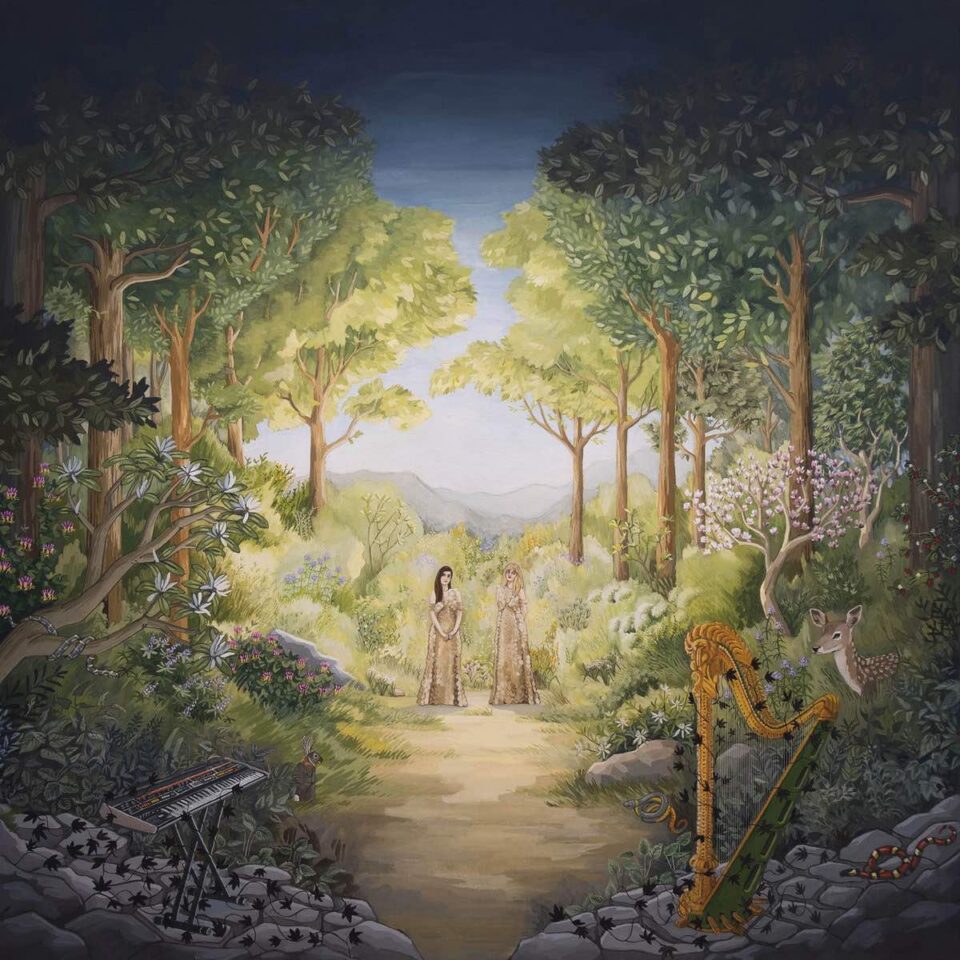John Vanderslice is fifty-one years old and he likely listens to more new music than the average twenty-one-year-old. Last year, the veteran songwriter and owner of the analog recording studio Tiny Telephone created a fifteen-hour Spotify playlist consisting of hip-hop that he liked throughout 2018. “And that was way edited down,” he tells me. He also made a twelve-hour playlist for rock-related music. He says he’s obsessed with making them.
“I do it for two reasons,” he explains. “One is to shame humans for not listening to really current music. I think that it makes you a vile, awful person—adjacent to a Trumper. Like, you’re just as bad as someone who likes Donald Trump, to me [laughs]. I really am aggressively pro-new music—I think that it keeps you alive. And I don’t like the kind of degraded thinking that accompanies the idea that music was great in ‘x’ period. You know, when your neurons were actually firing. It’s just such a sick, sad way to think about life.”
Although it would be reasonable for an artist twenty years into their career to hold onto the influences of their youth, the sprightly Vanderslice found inspiration in some of the most cutting-edge albums of 2018 while making his eleventh record, The Cedars. With its contemporary production tones, unusual stylistic changeups, and forward-thinking vocal effects, The Cedars does indeed sound affected by the works of JPEGMAFIA, Spirit of the Beehive, and Richard Dawson.
We spoke to Vanderslice about some of the record’s most potent influences, as well as some of the albums he’s heard since its creation that are already inspiring his next work.
The Spirit of the Beehive, Hypnic Jerks
I saw them open up for Palm, and I think it was just me and my friend who were like, “Oh my god this band is fucking exceptional.” The melody lines are unbelievable. I mean, these are proper songs, and they’re challenging and tricky and I went apeshit for that show. There’s something about the aggressive key changes that got me pushing the tonal palette that I was using. It has all of the elements—there’s weird mathy and psych elements in there—but they make it all singable. They make it all hooky in a way that maybe Palm doesn’t.
Richard Dawson, Peasant
For some reason there was something about the live ensemble playing on this record, and the radical tuning of what he was doing. Lyrically, it’s totally ridiculous—it’s this kind of middle-English fantasy shit—but I went nuts for that, because he does not give a shit, man. He’s willing to be really vulnerable.
He said he got obsessed with English history and he just basically wrote this weird Canterbury Tale. I just loved the commitment: that it was a concept record about singing about mead. I don’t know, I think that if an album comes out and it gets you, that feeling is irreplaceable. I get why people are like, “Yeah I got into King Sunny Adé and now I’m, like, a ‘Hi Life’ guy.” I kinda get it. But I think it’s cool to be part of the current culture, too.
Rap is a completely different category because rhythmically it’s so compelling that you don’t necessarily need melodic information in the same way that you do in pop music. But there are songs on Peasant like “Prostitute,” and on Hypnic Jerks, that second song on the record [“Mantra Is Repeated”]. Sometimes they’re like sixteen-bar, resolving, complicated vocal melody lines.
JPEGMAFIA, Veteran
I think it’s important that when you’re making a record, and you hear something that’s beyond what you’re trying to get to, it’s really inspiring. ’Cause it kind of shames you a little bit. I heard Veteran and I was like, “Oh shit, the moves that we’re trying to make are so mellow compared to this. We’re driving forty-five miles per hour over the Golden Gate Bridge and this fucker is on two wheels, and he’s got, like, a Lambo. He’s doing some drifting, or whatever.”
“I heard Veteran and I was like, ‘Oh shit, the moves that we’re trying to make are so mellow compared to this. We’re driving forty-five miles per hour over the Golden Gate Bridge and this fucker is on two wheels, and he’s got, like, a Lambo.’”
It kind of challenges you, and it stokes you up. You’re like, “Fuck, we can do weirder moves, and not only is it OK, this is the only way to proceed.” That’s how music gets pushed forward, and it’s a beautiful part of listening to current music—that it’s infinitely inspiring.
There’s some kind of cut-and-paste moves that he does. There’s this one song, dude, at the end that really affected me. [“Rainbow Six” is] a very oddly constructed, abstract tune with very little rapping, but he somehow holds it together in a way that kind of emboldened me to think, like, “Oh, you can do these cuts and someone is forced to make sense of it later.”
There’s, like, maybe six tape edits in [“Will Call” from The Cedars] that, for us, were very irrational moves. They just did not make any sense. For a listener, again, you’re gonna be forced to make sense of them so you’ll never read them as, like, willfully abstract moves. At some point we just cut the tape randomly to see what happened. We made it work, and that was definitely me listening to Veteran over and over and over again.
Busdriver, Electricity Is on Our Side
I liked how opaque and veiled that record is for the first four or five songs. And then it gets into “The Year I Became a Mutherfuckin’ G” and it’s like, “Oh my god, this is fucking pop genius.” I thought that that was an amazing arc for an album. It’s almost like the rapping doesn’t even open up or become understandable until, like, three or four songs into the record. And I just loved how strange the pacing was on that record. I had never heard anything like it.
And again, if someone’s in the middle of a very long career—he has a lot of records—and he is, like, completely fearlessly changing what he’s doing, it’s pretty inspiring.
Tierra Whack, Whack World
This did not affect The Cedars because I got into it right as we were finishing the record, and I remember thinking, “Oh fuck, this is so cool. This is so much cooler than what I’m doing.” I literally thought, like, “Wow, this is so extreme.” It’s conceptually extreme…some people were, like, “Oh it’s kitschy, a minute cut-off.” And I was like, “No, it’s not kitschy. This is an act of brutality.”
There are some songs like that “Fruit Salad” tune that are so high level. And to cut that off after a minute, you are killing something, man. I don’t even think you get the same streaming payments when it’s under two minutes. That was really intense, I think, to do that. I really felt that that was an extreme act of creative intensity to make that record.
Mothers, Render Another Ugly Method
This also did not influence The Cedars because I just started listening to it, but I have to say it’s the record right now—’cause I’m writing a lot of songs right now. It’s definitely changing the way that I think about melody lines. Because there’s just a floating vocal—it’s almost like a pedaled vocal note—above these complicated guitars. She’s just doing something different. It’s a different type of songwriting and it’s really, really good.
There’s a lot of two-part songs on it. It’s something that Travis Scott did on Rodeo, the whole record, which I think is fascinating—you’re fusing together these two songs that somehow you’re forced to make sense of. And there’s a lot of mathy and very strange-out elements on that Mothers record. But it’s still a beautiful, sad, confessional album.
There’s a line where she says something like, “Every time my dad talked about his mom, he cried.” And it’s just like, “What the fuck? Where are we?” ’Cause it just sounds like some sort of weird guitar record, and it’s not. I love that record. FL







